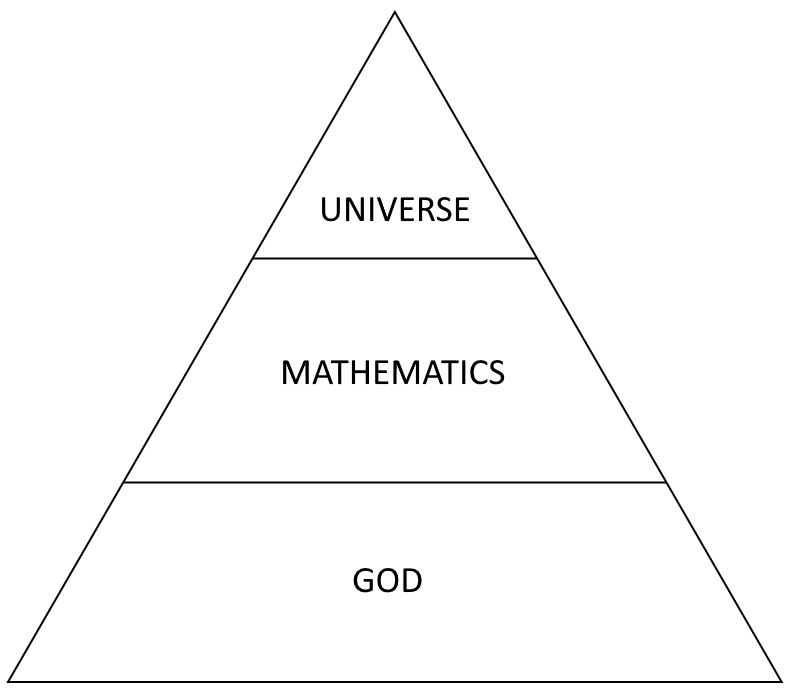From my recent reflections, it undeniably follows that God uses mathematics in the form we know it. Why this particular mathematics and not another? I don't believe it was imposed upon Him; rather, He "chose" it Himself, just as many physical systems find stability in a state of minimal energy. God might also optimize toward a system that is most expressive yet internally consistent and harmonious. Just as the best musician selects only top-tier instruments, so God chose the mathematics known to us.
An analogy to chess comes to mind here. The better the player, generally, the narrower his range of moves. A beginner considers all possibilities, while a grandmaster quickly dismisses most as useless and selects from a limited set of candidate moves. Similarly, God—like a chess grandmaster—limited His repertoire of moves in adopting successive forms to the mathematics we know. Of course, this pertains at least to the physical reality familiar to us and doesn't necessarily apply to other kinds of realities that may exist.
However, I would be cautious in attempting to equate God (or the Essence) with mathematics. Mathematics is rather a layer of abstraction above God but is not different from Him; it exists because it allows Him to assume successive forms, including dynamic mathematical structures like our Universe. This is somewhat reminiscent of how humans build cities. They don't do it directly from their entirely natural state but only when they possess tools, basic culture, and the ability to cultivate the land, etc. Thus, one could say that fundamental social organization creates a layer of abstraction above humanity, and only from this layer do cities emerge. The layer of abstraction isn't something different from the being upon which it arises—it's identical with it—but it allows for the creation of even more complex structures at a higher level.
This relationship can be visualized as a pyramid. Let's assume we occupy its very apex. Looking down from the top, what do we see? Physical reality. Over time, however, we discover that it is a dynamic mathematical structure simple enough for us to decipher its structure and the relationships governing its evolution. Based on this, we conclude that the existence of mathematics must precede the Universe and be independent of it. Therefore, we infer that the Universe is merely a layer of abstraction based on the preceding layer, which we might call the Platonic world of mathematics.
But where did mathematics come from, and why is it as we observe it? Why isn't it entirely different? Why does it exist at all? At this point, we reach the conclusion that it, too, must have originated from somewhere and that there must exist a being within which it exists. We thus conclude that there must be a third layer of abstraction, which we'll call the Essence, Substance, or God, upon which the Platonic world of mathematics is founded, analogous to how the Universe is founded upon it.
Therefore, looking from the very top, we see only a part of metareality—the horizons of empirical knowledge limit us to the boundaries of the Universe, the physical reality. However, based on our understanding of it, we can infer the existence of the Platonic world of mathematics, and from its existence—the existence of God.
It's possible that more layers exist and that, for example, between the Platonic world of mathematics and God, we should add a layer of logic. However, the focus here isn't on precision but on outlining the general structure that metareality assumes.
Sponsored by: Wiadomości giełdowe GPW






